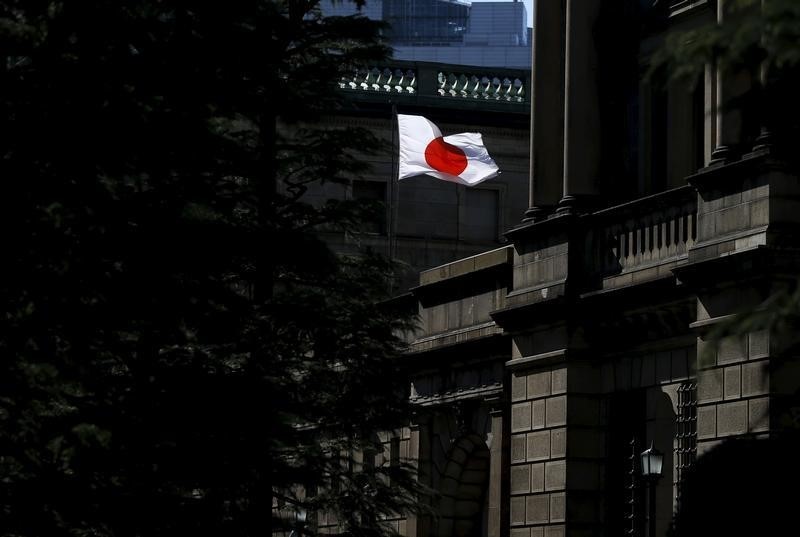Investing.com-- The Bank of Japan is widely expected to keep interest rates on hold at the conclusion of a meeting this week, although an improved outlook for Japanese wages and a sharp decline in the yen may elicit hawkish signals from the central bank.
The BOJ is set to keep its benchmark interest rate at 0.1%, after hiking the rate from negative territory in March- its first rate increase since 2007. The BOJ had also largely ended its yield curve control and asset buying measures.
While the move did mark a shift in the BOJ’s policy, the central bank had offered a largely dovish outlook on future rate moves. The bank had signaled it would keep monetary conditions accommodative in the near-term, with the intent to foster economic growth in Japan.
But the factors that had initially driven the BOJ’s March rate hike still remained in play. Chiefly, Japanese wage growth is expected to pick up in the coming months, especially after major labor unions in the country won bumper wage hikes for the year.
BOJ Governor Kazuo Ueda signaled that higher wages and inflation will eventually draw more rate hikes by the BOJ this year. But he also emphasized on the need for loose policy in the near-term, citing a fragile Japanese economy.
The case for a hawkish BOJ
A recent pick-up in Japanese inflation- from two-year lows- could see the BOJ hike its inflation outlook for the year. Such a scenario also appears more likely in the face of stronger wage growth this year.
Recent purchasing managers index data also showed Japanese business activity remained resilient- a trend that is also expected to continue with strong wage growth.
Signs of resilience in the Japanese economy, coupled with stickier inflation, give the BOJ more impetus and headroom to tighten monetary policy.
Additionally, recent weakness in the yen- where the USDJPY pair hit 34-year highs above 155- could also draw hawkish rhetoric from the BOJ, if only to stem a slide in the currency.
The yen has seen little support despite repeated warnings of currency market intervention by Japanese officials. Such a scenario could pressure Ueda into supporting the yen through hawkish commentary.
Pressure on Ueda to act could also come from fears of a scenario as that seen in 2022. Ueda’s predecessor, Haruhiko Kuroda, had avoided supporting the yen- a trend that saw the currency slump to 1990 lows, which in turn attracted record levels of intervention by the Japanese government.
“We expect the BoJ to keep its policy target unchanged, but the market’s focus should be on its quarterly outlook report. Given higher inflation in the first quarter, stronger-than-expected wage growth, and a weaker-than-expected yen, we expect the inflation outlook to be revised up,” analysts at ING wrote in a note.
“We believe that the BoJ’s rate hike expectations will grow as the year progresses.”
How will USDJPY react?
Inaction by the BOJ exposes the yen to even more downside pressure- a trend that, barring any intervention by the Japanese government, could see the USDJPY pair push further beyond 155.
But any hawkish signals from the central bank are likely to spark strong gains in the yen, dragging the USDJPY pair away from 34-year highs.
Still, any recovery in the yen is expected to be limited, given that the main point of pressure on the currency, which is higher-for-longer U.S. interest rates- has only worsened in recent weeks.
How will the Nikkei 225 react?
The Nikkei 225 was slapped with a heavy bout of profit-taking in April after a strong performance in the first quarter. Any hawkish rhetoric from the BOJ is likely to worsen the Nikkei’s losses, given that higher Japanese interest rates will mark an end to nearly a decade of easy monetary policy enjoyed by Japanese stocks.
An ultra-dovish BOJ was a key point of support for the Nikkei 225 over the past two years.
Still, analysts at UBS said that Japanese stocks retained more potential for upside, especially on the back of strong earnings.
